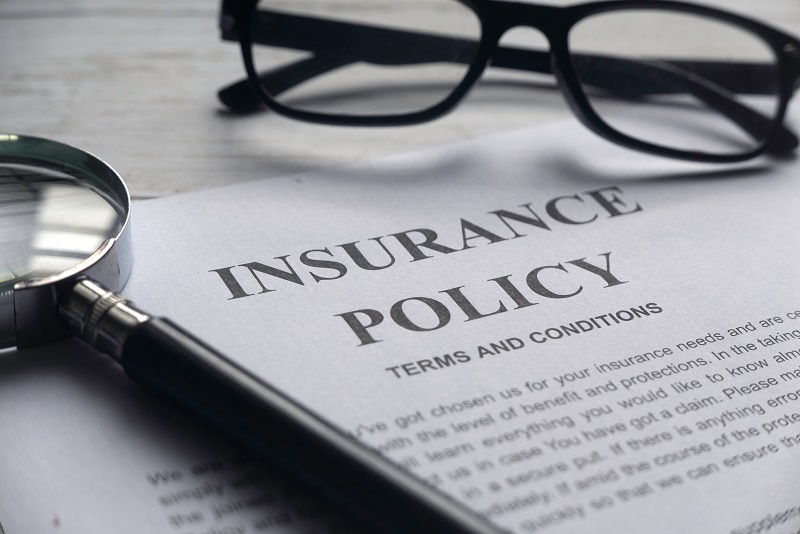Are you looking to start a credit repair business in Alaska? With the right information and preparation, you can begin a successful endeavor that can make a real difference in your financial future.
In this article we will provide an overview of what to consider when starting a credit repair business in the state of Alaska. From understanding the laws and regulations to finding resources to help you move forward, we’ll cover it all!
Check with the Alaska Division of Banking and Securities

The Alaska Division of Banking and Securities is responsible for regulating credit repair businesses in the state. You should check with them to find out if there are any specific requirements or regulations that apply to your business. You can contact them at
(907) 269-8140 or visit their website.
Licensing:
The state of Alaska requires credit repair organizations to be licensed by the Division of Banking and Securities. This license is required for anyone who engages in credit repair activities, including advertising, soliciting, providing advice or assistance, and negotiating on behalf of clients.
Bonding:
Credit repair organizations are also required to obtain a surety bond in the amount of $10,000. This bond serves as a guarantee to clients that the organization will follow ethical business practices and comply with all applicable laws and regulations.
Prohibited Practices:
The Division of Banking and Securities prohibits credit repair organizations from engaging in certain practices, such as making false or misleading claims, charging upfront fees before services are provided, or advising clients to dispute accurate information on their credit reports.
Disclosures:
Credit repair organizations are required to provide clients with a written disclosure that outlines the services being provided and the client’s rights under the law. This disclosure must be provided before any services are performed and must be signed by the client.
Record Keeping:
Credit repair organizations are required to maintain accurate records of all transactions and communications with clients. These records must be kept for a minimum of three years and must be made available to the Division of Banking and Securities upon request.
Penalties for Noncompliance:
Credit repair organizations that fail to comply with the laws and regulations governing the industry may face penalties, including fines, license revocation, and legal action.
Review Federal Regulations

There are federal laws that govern credit repair businesses, such as The Credit Repair Organizations Act (CROA). You should review these laws to ensure that your business complies with all applicable regulations.
Disclosure Requirements:
Credit repair organizations are required to provide clients with a written disclosure that outlines the services being provided and the client’s rights under the law. This disclosure must be provided before any services are performed and must be signed by the client.
Prohibited Practices:
The CROA prohibits credit repair organizations from engaging in certain practices, such as making false or misleading claims, charging upfront fees before services are provided, or advising clients to dispute accurate information on their credit reports.
Right to Cancel:
Clients have the right to cancel their contract with a credit repair organization within three business days of signing the contract, without penalty.
Record Keeping:
Credit repair organizations are required to maintain accurate records of all transactions and communications with clients. These records must be kept for a minimum of two years and must be made available to clients and regulatory agencies upon request.
Penalties For Noncompliance:
Credit repair organizations that fail to comply with the CROA may face penalties, including fines, license revocation, and legal action.
In addition to the CROA, credit repair organizations in Alaska may be subject to other federal laws and regulations, such as the Fair Credit Reporting Act (FCRA) and the Truth in Lending Act (TILA).
The Truth in Lending Act (TILA) is a federal law that governs the disclosure of credit terms and costs to consumers. While TILA is not specifically related to credit repair, it does have implications for credit repair organizations in Alaska and throughout the United States.
- Under TILA, lenders are required to disclose certain information about the terms and costs of credit, including the annual percentage rate (APR), the finance charge, and the total amount of payments. These disclosures must be provided to the consumer before they agree to the credit terms.
- Credit repair organizations may be affected by TILA in a few ways. For example, if a credit repair organization provides financing for its services or refers clients to a lender, it may be considered a creditor under TILA and be required to provide disclosures to clients.
- Additionally, credit repair organizations may need to be aware of TILA when working with clients who have existing credit accounts. If a client disputes information on their credit report that relates to the terms or costs of their credit account, the credit repair organization may need to ensure that the lender provides accurate TILA disclosures to the client.
- Overall, while TILA is not directly related to credit repair, it is an important federal law that governs the disclosure of credit terms and costs to consumers. Credit repair organizations in Alaska should be aware of TILA and consult with a licensed attorney or a professional advisor to ensure that they comply with all applicable federal and state laws and regulations.
Obtain Necessary Licenses and Permits

Depending on the nature of your business, you may need to obtain certain licenses or permits to operate legally in Alaska. You should consult with a licensed attorney or a professional advisor to determine what licenses or permits you may need.
In Alaska, credit repair organizations are required to obtain a license from the Division of Banking and Securities to operate legally. Here are some of the steps you need to take to obtain a license:
Obtain a Surety Bond:
Before applying for a license, you must obtain a surety bond in the amount of $10,000. The bond serves as a guarantee to clients that your organization will follow ethical business practices and comply with all applicable laws and regulations.
Submit an Application:
You must submit an application for a credit repair organization license to the Division of Banking and Securities. The application will require you to provide information about your organization, including its name, address, and ownership structure.
Pay a Fee:
You must pay a fee to the Division of Banking and Securities when you submit your application. The fee is currently $500.
Provide Documentation:
You must provide documentation to the Division of Banking and Securities to demonstrate that you meet the requirements for licensure. This may include financial statements, proof of bonding, and information about your business practices.
Pass a Background Check:
The Division of Banking and Securities will conduct a background check on all owners, officers, and employees of your organization to ensure that they meet the requirements for licensure.
Maintain Compliance:
Once you have obtained a license, you must maintain compliance with all applicable state and federal laws and regulations. This includes providing clients with written disclosures, maintaining accurate records, and complying with advertising laws.
Develop a Business Plan

A solid business plan can help you define your business goals, target market, marketing strategies, and financial projections. It can also help you secure financing and attract investors.
Define Your Goals:
Start by defining your short-term and long-term goals for your credit repair business. What do you hope to achieve in the next year? The next three years? What specific metrics will you use to measure your success?
Identify Your Target Market:
Who is your ideal customer? What demographic characteristics do they have? What are their pain points and needs when it comes to credit repair services?
Research your Competition:
Who are your competitors in the credit repair industry? What services do they offer? What are their strengths and weaknesses? How will you differentiate yourself from them?
Develop a Marketing Strategy:
How will you reach your target market and attract new customers? What channels will you use to promote your services, such as social media, email marketing, or paid advertising? How will you measure the effectiveness of your marketing efforts?
Define Your Service Offerings:
What specific services will you offer to your clients? Will you provide credit counseling, dispute resolution, debt consolidation, or other services? How will you price your services and what packages will you offer?
Create a Financial Plan:
What are your projected revenue and expenses for the first year of operation? How will you fund your business initially, and what is your plan for growth and expansion over time? What are your cash flow projections?
Define Your Team:
Who will be part of your credit repair team? Will you need to hire additional staff or work with independent contractors? What roles and responsibilities will each team member have?
Review and Revise:
Once you have developed a draft of your business plan, review it and revise it as necessary. Share it with other professionals in the industry to get feedback and suggestions for improvement.
Establish a Legal Structure

You will need to establish a legal structure for your business, such as a sole proprietorship, partnership, LLC, or corporation. Each type of legal structure has different tax and liability implications, so you should consult with a licensed attorney or a professional advisor to determine which structure is best for your business.
Sole Proprietorship:
A sole proprietorship is the simplest legal structure and involves a single owner who is personally responsible for all aspects of the business. This structure does not provide any liability protection, so it may not be ideal for a credit repair business.
Partnership:
A partnership is a legal structure in which two or more individuals share ownership of a business. There are different types of partnerships, such as general partnerships and limited partnerships, each with their own unique liability implications.
Limited Liability Company (LLC):
An LLC is a legal structure that provides liability protection for the owners while also allowing them to operate as a partnership. This structure may be ideal for a credit repair business that wants to protect its owners’ personal assets.
Corporation:
A corporation is a separate legal entity from its owners and provides liability protection for them. However, this structure may be more complex and costly to establish and maintain than other legal structures.
Obtain Business Insurance

Depending on the nature of your business, you may need to obtain business insurance to protect against liability and other risks.
Professional Liability Insurance:
Also known as errors and omissions insurance, this type of insurance protects your business against claims of negligence, errors, or omissions in the services you provide to clients.
General Liability Insurance:
This type of insurance protects your business against claims of bodily injury, property damage, and other types of accidents that may occur on your business premises.
Cyber Liability Insurance:
This type of insurance protects your business against claims related to data breaches, cyber-attacks, and other types of cyber threats.
Business Owner's Policy (BOP):
A BOP is a packaged insurance policy that combines several types of coverage, such as general liability, property damage, and business interruption insurance.
To obtain business insurance for your credit repair business in Alaska, you should:
Identify Your Insurance Needs:
Start by identifying the types of insurance coverage your business needs based on your industry, services, and level of risk.
Shop Around for Insurance Quotes:
Contact several insurance providers to get quotes for the coverage you need. Compare prices, coverage limits, and deductibles to find the best policy for your business.
Review the Policy Carefully:
Once you have selected an insurance policy, review it carefully to ensure that it provides the coverage you need and that you understand the policy terms and conditions.
Purchase the Policy:
Once you have reviewed and accepted the policy, purchase the insurance policy and make sure that you understand the payment terms and renewal procedures.
Review and Update Your Insurance Regularly:
Review your insurance policy annually to ensure that it still meets your business needs and update it as necessary based on changes to your business operations.
Comply with Advertising Laws

There may be laws that govern how credit repair businesses can advertise their services. You should review these laws to ensure that your advertising materials comply with all applicable regulations.
Prohibited Practices:
The Credit Repair Organizations Act (CROA) prohibits credit repair organizations from engaging in certain practices in their advertising, such as making false or misleading claims, guaranteeing specific results, or advising clients to dispute accurate information on their credit reports.
Disclosures:
Credit repair organizations are required to provide written disclosures to clients that outline the services being provided and the client’s rights under the law. These disclosures must be provided before any services are performed and must be signed by the client.
Truth In Advertising:
Credit repair organizations must ensure that all advertising and marketing materials are truthful and not misleading. Any claims or representations made in advertising must be supported by evidence and cannot be deceptive or unfair.
Identification:
Credit repair organizations must identify themselves truthfully and accurately in all advertising and marketing materials. They must also identify the specific services being offered and the fees charged for those services.
Record Keeping:
Credit repair organizations are required to maintain accurate records of all advertising and marketing materials used to promote their services. These records must be kept for a minimum of three years and must be made available to regulatory agencies upon request.
By providing valuable services to clients in need, a credit repair business can not only improve the financial well-being of individuals but also contribute to the overall economic health of the state. With dedication, hard work, and a commitment to ethical practices, a credit repair business in Alaska can thrive and make a positive impact in the community.
Bonus: Now that you have read this article, why not take your new skill and start your own credit business helping others? We have free training that can help you do just that.
Click here to learn more.

